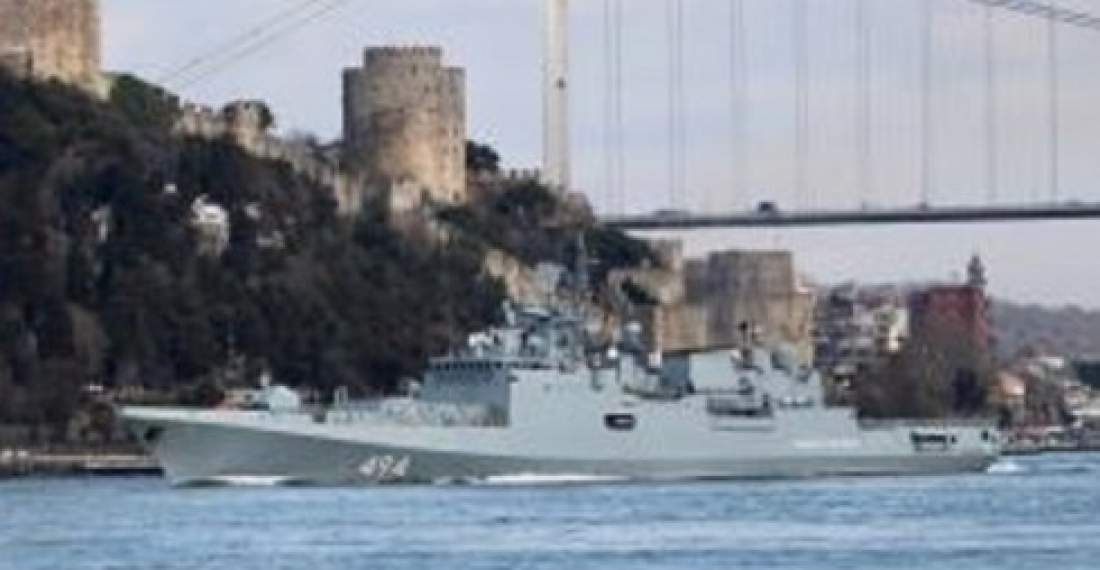After the killing of 34 Turkish soldiers in Idlib last week Turkey's leadership may be realising that whilst they may want Mr Putin out of their way in Syria. Mr Putin may want Turkey out of his way across the Eastern Mediterranean and the Levant. That may have indeed been an important lesson to learn or relearn.
The killing of thirty three Turkish soldiers in Syria's Idlib province last week sent shockwaves well beyond the Turkish political and military elite and political system.
In Syria Turkey is trying to establish a new order in areas that had previously been under the rule of radical Islamic groups, and to create safe havens for millions of people, some still in the area and others who have made their way to Turkey over the course of the last years. It is a messy business. Apart from the forces of the Syrian Arab Republic there are other foreign elements in Syria too, including Russians and Iranians. They have helped the government of Bashar al Assad to restore control over large swaths of the country over which he had lost control to Islamic State in the early stages of the civil war. Last week al Assad decided that in his quest to regain full control over Syrian territory Turkish troops were fair game and attacked them. The Turkish reaction, as was easily predictable, was furious.
Al Assad has long lost the legitimacy of claiming the leadership of the entire Syrian people. He has not cared about the thousands who died and the millions who were displaced. Hanging on to power has been the one and only objective.
Also, he could not possible have taken the step to attack Turkish forces if he had not been given the green light by his Russian allies. Some Turks even believe that the attack could only have been conducted with Russia's help. Turkish-Russian relations have been a peculiar feature of international relations for the last four years, and for a while promised to redefine the balance of power in the Eastern Mediterranean and the wider Middle East. The love affair is now well and truly over. Erdogan has told Putin "to step aside" and let Turkey finish the job in Syria. Mr Putin has invested too much in Syria to do that. An uncomfortable co-habitation is now the best that the two can hope for. Given the current tension and emotions even this is far from certain.
This situation is not someone's local difficulty, but a fully-fledged international crisis, that may yet grow. No wonder western countries lined up to support Turkey in its hour of grief. Turkey's relations with the west however remain complex. It is an important NATO country and an EU candidate country, despite the unfriendly rhetoric coming out regularly from Ankara, and sometimes also from Brussels and Washington. There are issues connected with migration; oil drilling rights in the Eastern Mediterranean, Libya and other questions where Turkey and the west have different positions, or at least are not on the same page. Western diplomacy has struggled to understand Turkey, especially in the last decade. Mr Erdogan often does not help. His pungent and colourful statements don't always add up. But western politicians too have failed to appreciate Turkish sensitivities and to recognise Turkey as the regional power that it is. The current situation calls for high level western engagement with Turkey and an effort to bring the two sides back as friends and allies should be before things get more complicated.
Just how things could get even more complicated emerged in the wake of the Syria killings when Turkish officials suggested Turkey may decide to close the Bosphorus and the Straits of Dardanelles, as it is allowed to do in time of war under the 1936 Treat of Montreux . This was being said as two important naval frigates of the Russian Black Sea Fleet, Admiral Makarov and Admiral Grigorovich - armed with highly accurate Kalibr-NK missile systems - were making their way through the Straits from their base in Crimea to Syria's Mediterranean coast. The intense traffic of Russian vessels to and from Syria - known as the Syrian Express - take place in full view of the whole world as the warships pass through the heart of the city of Istanbul.
The threat of disruption in maritime traffic in the Bosphorus, highlighted once more the vulnerability of countries like Georgia to events around them over which they have no control, or even direct interest. One further complication is the presence of an Armenian military mission of about 100 personnel in Syria. This mission is of a non-combat nature and is made up mainly of medical personnel and mine clearance experts. One hopes some way can be found to ensure they are not embroiled in the current shenanigans.
For centuries Turkey halted Russian expansion to the Mediterranean. During the Cold War it was the bulwark of NATO's defence in the South. Today the geo-politics are different, as are indeed the tools of war. Yet Turkey's leadership may be realising that whilst they may want Mr Putin out of their way in Syria. Mr Putin may want Turkey out of his way across the Eastern Mediterranean and the Levant. That may have indeed been an important lesson to learn or relearn.
source: The weekly Monday Commentary is prepared for commonspace.eu by Dr Dennis Director of LINKS Europe
photo: The Russian Frigate Admiral Grigorovich passing through the Bosphorus on Friday (28 February 2020).
The views expressed in opinion pieces and commentaries do not necessarily reflect the position of commonspace.eu or its partners






